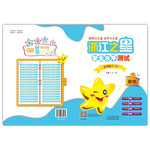题目内容
5.Life is never smooth.It's full of ups and downs,some hard times,some glad moments,and sometimes just nothing.So everyone should balance and accept all the ups and downs in life.For this,a person must think positively,which gives a person energy,motivation,power and patience to live each day.Positive thinking means you decide to be happy even though facing problems.This makes you confident so that you can live happily.When you ask for positive and good things to occur in your life,you are thinking positively.Positive thinking is nothing but channelizing (疏导) your energies in one positive direction so that the things you wish for are attracted towards you.If you wish for something from your heart and work towards achieving it,sooner or later,you'll get it.
To make your life better,you have to train yourself to think positively in any situation.You can design some positive thinking affirmations (断言) for the things you desire in life.For example,if you want success in life,then a positive affirmation for success could be"I'm going to be successful because I'm working hard for it".You must call out,write,or remember positive affirmations at least a couple of times throughout the day and you'll see your life changing for better.
You can form a combination between positive affirmations and imagination.For example,if you wish for a happy family,imagine that you're happily playing with your kids and spouse (配偶) with your parents looking at you all with satisfaction.It'll immediately make you feel good.You can also repeat the affirmations every morning before going out and you would certainly feel positive.However,you must link your positive affirmations to actual daily actions,and they'll surely come true.
| Title:Positive thinking | |
| (76)Benefits/Advantages | l Help people balance and (77)acceptall the ups and downs in life. l Keep a person (78)energetic,motivated,powerful and patient to live each day. l Make a person keep happy even though in (79)trouble. l Bring confidence. |
| Meanings | l Asking for the(80)occurrenceof positive and good things in your life. l Channelizing your energies positively to (81)attractyour desired things towards you. |
| Tips | (82)Designpositive affirmations |
| Call out,write or remember positive affirmations several times a day | |
| (83)Combinepositive affirmations with imagination | |
| Repeat the affirmations before (84)leaving home every morning | |
| Link positive affirmations to actual daily (85)actions. | |
分析 短文主要讲了积极思考的好处以及其意义,对于发展人们的积极思考,作者给出了几点建议.
解答 76.Benefits/Advantages,短文的第一段讲了积极思考给人带来的好处,故使用名词的复数形式Benefits/Advantages.
77.accept,根据文章第一段So everyone should balance and accept all the ups and downs in life可知我们每个人都应该平衡和接受生活中的曲折起伏,故使用动词原形accept.
78.energetic,根据句子For this,a person must think positively,which gives a person energy,motivation,power and patience to live each day可知积极思考能让人保持充满活力的,因此使用形容词energetic"充满活力的"充当keep的宾语补足语.
79.trouble,由句子Positive thinking means you decide to be happy even though facing problems可知积极思考能让你在困境中保持快乐,因此使用短语in trouble"处于困境中".
80.occurrence,根据句子When you ask for positive and good things to occur in your life,you are thinking positively可知当你心想着生活中发生积极的好事时,你就是处于积极思考,因此此处使用"发生"的名词形式occurrence.
81.attract,根据句子Positive thinking is nothing but channelizing (疏导) your energies in one positive direction so that the things you wish for are attracted towards you可知当你往积极的方面想,你就能吸引那些你所希望的事情,因此动词不定式to后接动词原形attract.
82.Design,这一部分主要讲的是积极思考的建议,根据句子You can design some positive thinking affirmations 可知是设计那些积极的话语,故答案为Design.
83.Combine,根据句子You can form a combination between positive affirmations and imagination可知把积极话语和想象结合起来,因此使用动词Combine.
84.leaving,根据句子You can also repeat the affirmations every morning before going out 可知在你离开家之前重复那些积极的话语,前面有介词before,因此答案应使用动名词形式leaving.
85.actions,根据句子you must link your positive affirmations to actual daily actions可知必须把积极的话语和每天的实际行动联系起来,故答案为actions.
点评 在做表格阅读时,首先需要快速的浏览全文,把握文章的主旨大意;其次要学会带着问题到文中相应的地方,通过细节阅读来寻找或概括答案;最后理清作者的写作思路也非常重要;做此类题时,要多注意一些关键词的提取,以及结构上的搭配.

 一课一练一本通系列答案
一课一练一本通系列答案 浙江之星学业水平测试系列答案
浙江之星学业水平测试系列答案 高效智能课时作业系列答案
高效智能课时作业系列答案The findings came from a Gallup survey of more than three hundred forty thousand adults in the United States in 2008.At that time,the people were between the ages of eighteen and eighty-five.
Arthur Stone in the Department of Psychiatry and Behavioral Science at Stony Brook University in New York led the study.His team found that levels of stress were highest among adults between the ages of 22and 25.Stress levels dropped sharply after people reached their fifties.
Happiness was highest among the youngest adults and those in their early seventies.But the people least likely to report negative emotions were those in their seventies and eighties.
The survey also found that men and women have similar emotional patterns as they grow older.However,women at all ages reported more sadness,stress and worry than men did.
The researchers also considered possible influence like having young children,being unemployed or being single.But they found that influences like these did not affect the levels of happiness and well-being related to age.
So why would happiness increase with age?One theory is that,as people get older,they become more thankful for all that they have and have better control of their emotions.They also spend less time thinking about bad experiences.
Happiness is not the only thing that apparently improves with age.In a study published this year,people in their eighties reported the fewest problems with the quality of their sleep.
Researchers surveyed more than 150,000American adults.The study,led by Michael Grander at the University of Pennsylvania,appeared in the journal Sleep.
The original goal was to confirm the popular belief that aging is connected with increased sleep problems.The survey did find an increase during middle age,especially in women.But except for that,people reported that they felt their sleep quality improved as they got older.
| Title | The older you get,the (71)happier you are! |
| (72)Findings/Results of a Gallup survey | •People are happier with their life when they are at 85than they are at 18.Happiness is highest among the youngest adults and those in their early seventies. •People in their seventies and eighties are (73)least likely to report negative emotions. •Men and women have similar emotional patterns as they grow older,(74)except that women always report more sadness,stress and worry. |
| (75)Reasons for this phenomenon | •People become more thankful for (76)what/all they have. •People can (77)control their emotions better. •People spend less time thinking about bad experiences. |
| Effects of aging (78)on sleep | •On the one hand,sleep problems (79)increase during middle age. •On the other (80)hand,sleep quality improves as people get older. |
He responded that,in his opinion,it all came from a(n)(38)A with his mother that occurred when he was about two years old.He had been trying to(39)C a bottle of milk from the refrigerator when he lost his grip on the slippery bottle and it fell,(40)A its contents all over the kitchen floor-a veritable sea of milk!
When his mother came into the kitchen,instead of(41)B at him,giving him a lecture or punishing him,she said,"Robert,what a great and wonderful(42)B you have made!I have rarely seen such a huge puddle of milk.Well,the(43)D has already been done.Would you like to get down and play in the milk for a few minutes(44)D we clean it up?"
Indeed,he did.After a few(45)C,his mother said,"You know,Robert,whenever you make a mess like this,eventually you have to clean it up and (46)A everything to its proper order."And together they cleaned up the spilled milk.
His mother then said,"You know,what we have here is a (47)B experiment in how to effectively carry a big milk bottle with two tiny hands.Let's go out in the back yard and (48)A water into the bottle and see if you can discover a way to carry it without (49)B it."The little boy (50)C that if he grasped the bottle at the top near the lip with both hands,he could make it.What a wonderful (51)D!
This renowned scientist then(52)C that it was at that moment that he knew he didn't need to be afraid to make mistakes.Instead,he learned that mistakes were just(53)C for learning something new,which is,after all,what scientific(54)D are all about.Even if the experiment"doesn't work,"we usually learn something (55)A from it.
| 36.A.choices | B.breakthroughs | C.headlines | D.decisions |
| 37.A.normal | B.usual | C.extraordinary | D.average |
| 38.A.experience | B.association | C.event | D.fiction |
| 39.A.boil | B.cook | C.remove | D.freeze |
| 40.A.spoiling | B.spraying | C.spreading | D.sweeping |
| 41.A.pointing | B.yelling | C.smiling | D.glancing |
| 42.A.discovery | B.mess | C.arrangement | D.joke |
| 43.A.disaster | B.destruction | C.harm | D.damage |
| 44.A.when | B.while | C.after | D.before |
| 45.A.days | B.hours | C.minutes | D.seconds |
| 46.A.restore | B.recover | C.relieve | D.renew |
| 47.A.succeeded | B.failed | C.conducted | D.fascinated |
| 48.A.fill | B.keep | C.store | D.save |
| 49.A.falling | B.dropping | C.quitting | D.breaking |
| 50.A.studied | B.researched | C.learned | D.witnessed |
| 51.A.class | B.course | C.curriculum | D.lesson |
| 52.A.recited | B.recommended | C.remarked | D.reported |
| 53.A.environment | B.situations | C.opportunities | D.settings |
| 54.A.skills | B.approaches | C.developments | D.experiments |
| 55.A.valuable | B.essential | C.awful | D.merciful |
